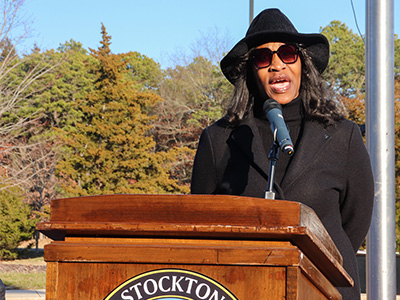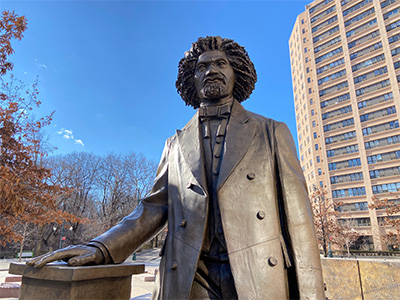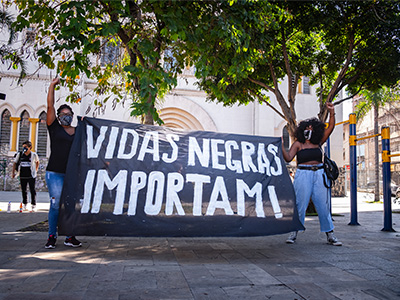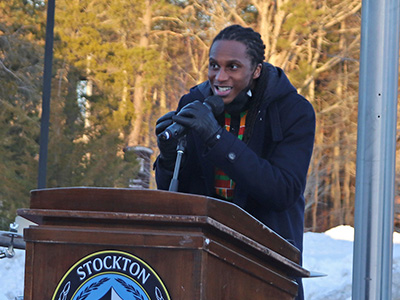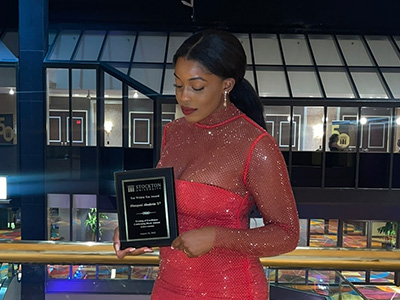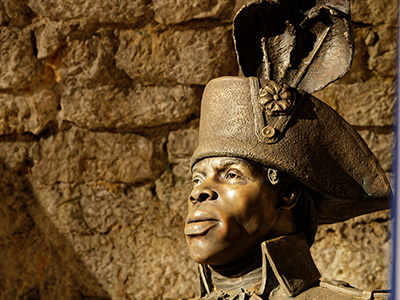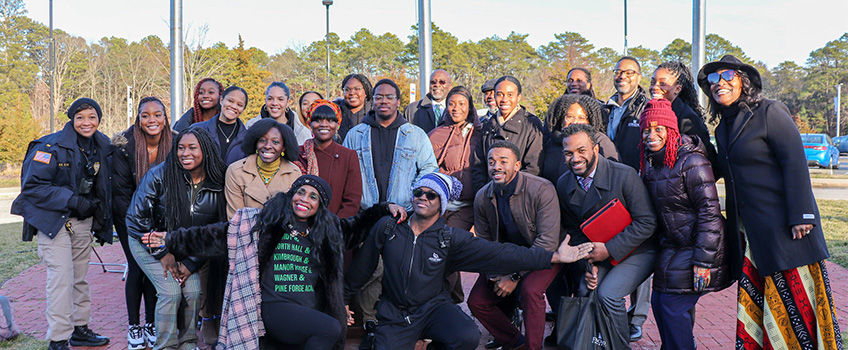What Black Resistance Means to the Africana Studies Faculty
Compiled by Loukaia Taylor, ’22
This year’s national theme for Black History Month is “Black resistance.” We asked faculty members of Stockton University’s Africana Studies program to describe what that means to them.
Donnetrice Allison, professor and chair
There are those who like to suggest that Black people were born to be subservient and that they accepted their second-class status willingly, but this is wholly untrue. Black people have always resisted, from the first time Europeans made attempts to invade their homeland to this very day every time brutality and injustice raises up against them.
Frederick Douglass once said that there is no progress without struggle.
I submit that all of the progress that Black people have made in this country and around the world has been through struggle and protest, and demand. Nothing has been given freely. Moreover, Black struggle and resistance have paved the way for so many others to find their voices and speak out against other forms of injustice and oppression.
That is the power of Black resistance."
Kimoni Yaw Ajani (formerly known as Wilbert St. Hilaire), assistant professor
History, or rather “Ourstory,” shows that there were many converging rivers/streams of Afrikan warfare and resistance against those who would deny the humanity of Afrikan people.
This case is especially true when one examines Kandake Amanirenas of Kush and her war of resistance against the Roman Empire in 24 B.C.
It is true when one examines the Zanj rebellion (869-883) when enslaved Afrikans/Blacks in the Middle East rose up and defeated the Abbasid Caliphate and established their own society.
The case of Black/Afrikan resistance is especially true when we re-examine one of the most successful revolutions in the Western Hemisphere known as the Afrikan Revolution in Ayiti (Ayisyen/Haitian Revolution).
As one fast-forwards to our current era, the converging streams of Afrikan resistance against oppression and global white supremacy still continue.
It continues in Brazil amongst Afro-Brazilians and the indigenous communities living in the rain forest who resist the white supremacist hierarchy and racist system perpetuated by Jair Bolsonaro. Most importantly, Black/Afrikan resistance continues here in the United States with the NFAC (Not F***ing Around Coalition) which promoted armed self-defense against white militant militias throughout the Black Lives Matter movement and much of the COVID-19 epidemic.
The time will come when people of Afrikan descent across the globe truly unite against the global system of white supremacy/racism. But, until that time, the fight to liberate Afrikan minds and bodies must continue."
Olutoyosi “Toyo” Aboderin, dual credit coordinator and lecturer
When I think of resistance, I think about the Mino, referred to as the Dahomey Amazons by Western historians, who were a militant army comprised of African women who used strength and strategy to drive European colonizers from their land.
When I think of resistance, I think about the countless African souls who jumped ship during the Middle Passage choosing to rather die than be enslaved in a foreign land.
I think about the countless insurrections and rebellions from African and Indigenous people on the plantations all over the Americas and the Caribbean.
I think about the Haitian revolution and their ability to not only drive out French enslavers from their land but also the influence their victory had on countries throughout the Diaspora who would later fight for their independence.
I think about the Harlem Renaissance in the ‘20s & ‘30s, and the Black Arts Movement in the ‘60s and ‘70s and the intentional ways these artists intertwined their art and political activism together to fight white supremacy.
I think about efforts made by Black scholars throughout the country who fought for a space in academic institutions where African history could be taught authentically without the imposition of Eurocentric ideology.
I think about the community organization of the Civil Rights Movement, Black Power Movement and Black Lives Matter Movement to ensure the justice and agency of Black people in the United States.
But in the same breath, when I think about resistance, I also think about the students, faculty and staff here at Stockton University and their continuous efforts to create diverse spaces that protect and enrich the lives of Black communities within and outside of our campus."
Loukaia Taylor is an alumna of the Communication Studies program and member of the Campus Committee on Diversity and Inclusive Excellence.
